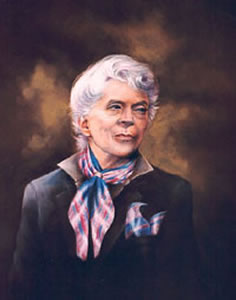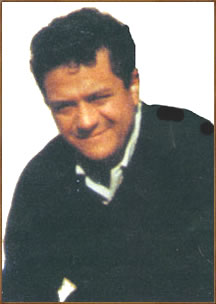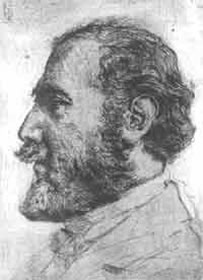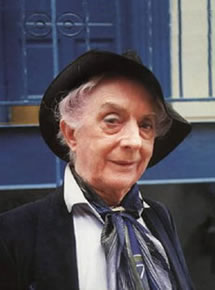Aan alle bezoekers en mede-bloggers een Prettig Kerstfeest!
De Engelse schrijver, acteur en homoactivist Quentin Crisp werd geboren als Denis Charles Pratt op 25 december 1908 in Sutton, Surrey. Zie ook mijn blog van 25 december 2006 en ook mijn blog van 25 december 2007
I WILL MAKE MUSIC
I will make endless music—syncopated,
shrill, sad music—out of English speech.
Your ears, to calumny habituated,
more euphonic phrasing might not reach.
I will make endless music till the lonely
limits of our torment have been told
that all may hear and some not only
hearken but be heartened and consoled.
I will make endless music. Say not
that the world’s ears are waxed or numb,
because I will not, dare not, may not,
see you suffer, and be dumb.

Quentin Crisp (25 december 1908 – 21 november 1999)
De Duitse schrijver, journalist en theatercriticus Alfred Kerr werd op 25 december 1867 in Breslau geboren. Zie voor onderstaande schrijvers ook mijn blog van 25 december 2006.
Freibad
Havelschwäne, grüne Blätter,
Menschenbeene, Hundstagswetter.
Menschen beiderlei Geschlechts.
Ein Gepaddel; ein Geächz.
Selig, wer ans Ufer sockt
Und bei seiner Gruppe hockt.
Langes Schmoren, langes Sonnen.
Manche Neigung hat begonnen.
Triefend singt ein junges Paar:
»’s war ein Sonntag hell und klar« …
Havelschwäne, grüne Blätter,
Menschenbeene, Hundstagswetter.
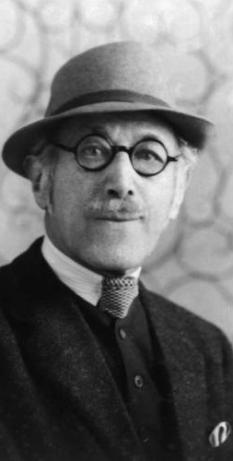
Alfred Kerr (25 december 1867 – 12 oktober 1948)
De Amerikaans-Peruviaanse schrijver Carlos Castaneda werd geboren op 25 december 1925 in São Paulo, Brazilië (volgens hem zelf) of op 25 december 1919 in Cajamarca, Peru (volgens zijn immigratiepapieren). Zie ook mijn blog van 25 december 2006. en ook mijn blog van 25 december 2007.
Uit: Active Side of Infinity
“At the time I met don Juan I was a fairly studious anthropology student, and I wanted to begin my career as a professional anthropologist by publishing as much as possible. I was bent on climbing the academic ladder, and in my calculations, I had determined that the first step was to collect data on the uses of medicinal plants by the Indians of the southwestern United States.
I first asked a professor of anthropology who had worked in that area for advice about my project. He was a prominent ethnologist who had published extensively in the late thirties and early forties on the California Indians and the Indians of the Southwest and Sonora, Mexico. He patiently listened to my exposition. My idea was to write a paper, call it “Ethnobotanical Data,” and publish it in a journal that dealt exclusively with anthropological issues of the southwestern United States.
I proposed to collect medicinal plants, take the samples to the Botanical Garden at UCLA to be properly identified, and then describe why and how the Indians of the Southwest used them. I envisioned collecting thousands of entries. I even envisioned publishing a small encyclopedia on the subject.
The professor smiled forgivingly at me. “I don’t want to dampen your enthusiasm,” he said in a tired voice, “but I can’t help commenting negatively on your eagerness. Eagerness is welcome in anthropology, but it must be properly channeled. We are still in the golden age of anthropology. It was my luck to study with Alfred Kroeber and Robert Lowie, two pillars of social science. I haven’t betrayed their trust. Anthropology is still the master discipline. Every other discipline should stem fromanthropology. The entire field of history, for example, should be called ‘historical anthropology,’ and the field of philosophy should be called ‘philosophical anthropology.’ Man should be the measure of everything. Therefore, anthropology, the study of man, should be the core of every other discipline. Someday, it will.”
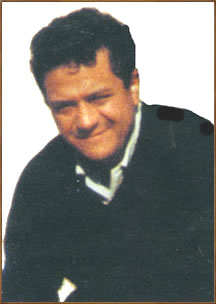
Carlos Castaneda (25 december 1925 – 27 april 1998)
De Duitse schrijver Friedrich Wilhelm Weber werd geboren op 25 december 1813 in Althausen. Zie ook mijn blog van 25 december 2006.
In der Winternacht
Es wächst viel Brot in der Winternacht,
Weil unter dem Schnee frisch grünet die Saat;
Erst wenn im Lenze die Sonne lacht,
Spürst du, was Gutes der Winter tat. –
Und deucht die Welt dir öd und leer,
Und sind die Tage dir rauh und schwer:
Sei still und habe des Wandels acht:
Es wächst viel Brot in der Winternacht.

Friedrich Wilhelm Weber (25 december 1813 – 5 april 1894)
De Engelse dichteres en dagboekschrijfster Dorothy Mae Ann Wordsworth werde geboren in Cockermouth, Cumberland, 25 december 1771. Dorothy was de een jaar jongere zus van de dichter William Wordsworth en heeft, zelf ongetrouwd, een groot deel van haar leven bij hem gewoond. Zij ambieerde zelf geen carrière als schrijfster en tijdens haar leven is er niets van haar gepubliceerd. Wel is zij, via haar dagboeken en geschriften over herinneringen van tochten en wandelingen met haar broer, van invloed geweest op Williams werk. Vanwege de vroege dood van haar ouders (haar moeder stierf toen ze zes was, haar vader toen ze twaalf was) bracht Dorothy haar jeugd door bij verschillende familieleden. In 1799 trok zij in bij haar broer, in ‘Dove Cottage’ in Grasmere. In 1802 trouwde William met Mary Hutchinson, met wie zij goed bevriend raakte. In 1829 werd zij ziek en de laatste decennia van haar leven had zij te kampen met lichamelijke en later ook geestelijke ongemakken.
Uit: Journals of Dorothy Wordsworth
“Thursday 15th.
It was a threatening misty morning—but mild. We set off after dinner from Eusemere. Mrs Clarkson went a short way with us but turned back. The wind was furious and we thought we must have returned. We first rested in the large Boat-house, then under a furze Bush opposite Mr Clarkson’s. Saw the plough going in the field. The wind seized our breath the Lake was rough. There was a Boat by itself floating in the middle of the Bay below Water Millock. We rested again in the Water Millock Lane. The hawthorns are black and green, the birches here and there greenish but there is yet more of purple to be seen on the Twigs. We got over into a field to avoid some cows—people working, a few primroses by the roadside, woodsorrel flower, the anemone, scentless violets, strawberries, and that starry yellow flower which Mrs C. calls pile wort. When we were in the woods beyond Gowbarrow park we saw a few daffodils close to the water side. We fancied that the lake had floated the seeds ashore and that the little colony had so sprung up. But as we went along there were more and yet more and at last under the boughs of the trees, we saw that there was a long belt of them along the shore, about the breadth of a country turnpike road. I never saw daffodils so beautiful they grew among the mossy stones about and about them, some rested their heads upon these stones as on a pillow for weariness and the rest tossed and reeled and danced and seemed as if they verily laughed with the wind that blew upon them over the lake, they looked so gay ever glancing ever changing. This wind blew directly over the lake to them. There was here and there a little knot and a few stragglers a few yards higher up but they were so few as not to disturb the simplicity and unity and life of that one busy highway. We rested again and again. The Bays were stormy, and we heard the waves at different distances and in the middle of the water like the sea. Rain came on—we were wet when we reached Luffs but we called in. Luckily all was chearless and gloomy so we faced the storm—we must have been wet if we had waited—put on dry clothes at Dobson’s. I was very kindly treated by a young woman, the Landlady looked sour but it is her way. She gave us a goodish supper.”

Dorothy Wordsworth (25 december 1771 – 25 januari 1855)

